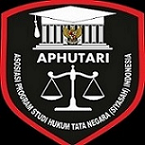Analisis Fatwa MUI Nomor 4 Tahun 2003
Abstract
Various kinds of culinary are rife in the middle of the city of padangsidimpuan by using thr name of processed food using a strange name. one of the branded products thet are currently becoming a tren in the community are meatballs with children, devil’s noodles, missile meatball cones and so on.Islam requires that the products to be consumed will be guaranteed to be halal and pure. Halal is not only from the type but also from the name. where in the explanation of the MUI Fatwa Number 4 of 2003 concerning standardization of halal fatwas, it is contained in the fourth section: the problem of using names and ingredients in point 1, namely “not to consume and use names and/or symbols of food/drinks that leat to kufr and falsehood”. From this background for naming processed foods in padangsidimpuan city based on MUI Fatwa Analysis Number 4 of 2003.This research is a field research. The research used is to collect data on the phenomena that occur. The data sources of this research are primary data and secondary data. Data collection techniques using field studies, namely ovservation, interviews and documentation.The results of this study indicate that traders or sesllers give the names of the foods they make with strange names because of the many business competitors. Based on the MUI Fatwa Number 4 of 2003, the author’s analysis of the naming of processed foods that are contrary to the MUI Fatwa are devil noodles, dragon whiskers, and devil’s chili chicken, while the names of processed foods that are allowed or not contrary to the MUI Fatwa Number 4 of 2003 such as meadballs with planet chicken because these names do not lead to kufr/falsehood as described in the MUI Fatwa.
Full Text:
PDFReferences
Referensi
a. Sumber Buku
Al-Gazali, Imam. Benang Tipis Antara Halal Dan Haram, Surabara: Putra Belajar, 2002.
Hasan,. Pengarahan Mentri Negara Urusan Pangan Dan Pada Muktamar Muhammadiyah Ke-43, Jakarta: Penerbit Mizan, 1998.
Indonesia, Majelis Ulama. Himpunan Fatwa MUI, Jakarta: Bagian Produksi Penerbit Erlangga, 2011.
b. Sumber Jurnal
Dalimunthe, Dermina. Comparasi Pengalihan Harta Hibah Menjadi Harta Warisan Prespektif Hukum Islam Dan Kitab Undang-Undang Hukum Perdata,Yurisprudentia: Jurnal Hukum Ekonomi Vol.6 No. 1, 2020.
Desri Ari Enghariano, Mhd Idris dan. Krakteristik Manusia Dalam Perspektif Al-Qur’an, Jurnal Al Fawatih : Jurnal Kajian Al Qur’an Dan Hadis, Vol.1, No.1 2020.
Harahap, Ikhwanuddin. Pendekatan Al-Maslahah Dalam Fatwa Majelis Ulama Indoesia (MUI) Nomor 24 Tahun 2017 Tentang Hukum Dan Pedoman Bermuamalah Melalui Media Sosial, Yurisprudensi: Jurnal Hukum Ekonomi, Vol 5, No 1, 2007.
Harahap, Nurhotia. Tindak Pidana Jual Beli Game Online Di Masa Pandemi", Jurnal Al-Maqasid: Jurnal Ilmu Kesyariahan Dan Keperdataan, Vol. 6, No.2, 2020.
Murroh, Adanan. Jual Beli Kredit Ditinjau Dari Persefektif Hukum Islam, Yurisprudesnsi: Jurnal Hukum Ekonomi, Vol 2, No 2,2016.
Sainul, Ahmad. Konse Hak Milik Dalam Islam, Jurnal Al-Maqasid: Jurnal Ilmu Kesyariahan Dan Keperdataan, Vol.6, No.2, 2010.
Simanjuntak, Dahliati. , “Rizqi Dalam Al-Qur’an”, Jurnal Al-Qanuny: Jurnal Ilmu Kesyariahan Dan Pranata Sosial, Vol.5, No.1, 2019.
Siregar,Sawaluddin, "Perspektif Hukum Islam Mengenai Mekanisme Manipulasi Pasar Dalam Transaksi Saham Di Pasar Modal", Yurisprudentia: Jurnal Hukum Ekonomi, Vol.3 No.2, 2017.
DOI: https://doi.org/10.24952/el-thawalib.v2i5.4400
Refbacks
- There are currently no refbacks.









Editorial Office Board :
Kampus UIN Syekh Ali Hasan Ahmad Addary Padangsidimpuan
Jl. T Rizal Nurdin No.Km 4, RW.5, Sihitang, Padangsidimpuan Tenggara, Kota Padang Sidempuan, Sumatera Utara 22733
 Jurnal El-Thawalib is licensed under a Creative Commons Attribution-ShareAlike 4.0 International License.
Jurnal El-Thawalib is licensed under a Creative Commons Attribution-ShareAlike 4.0 International License.
View My Stats






